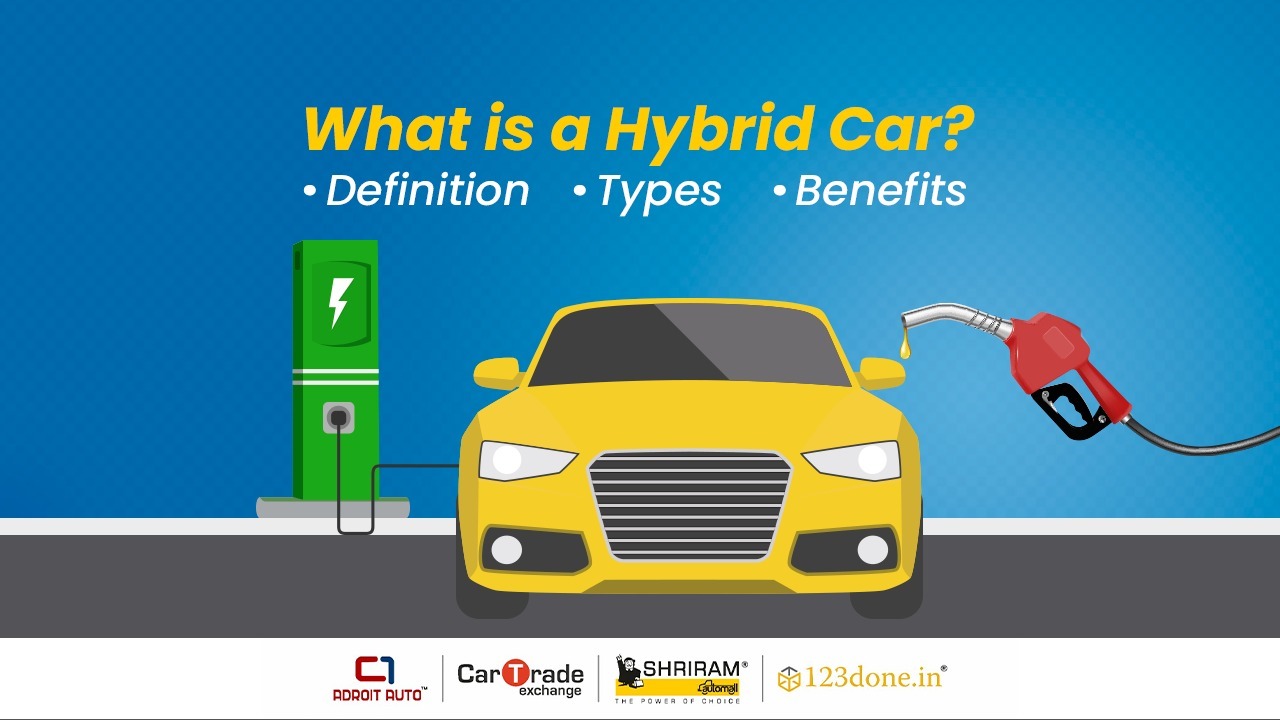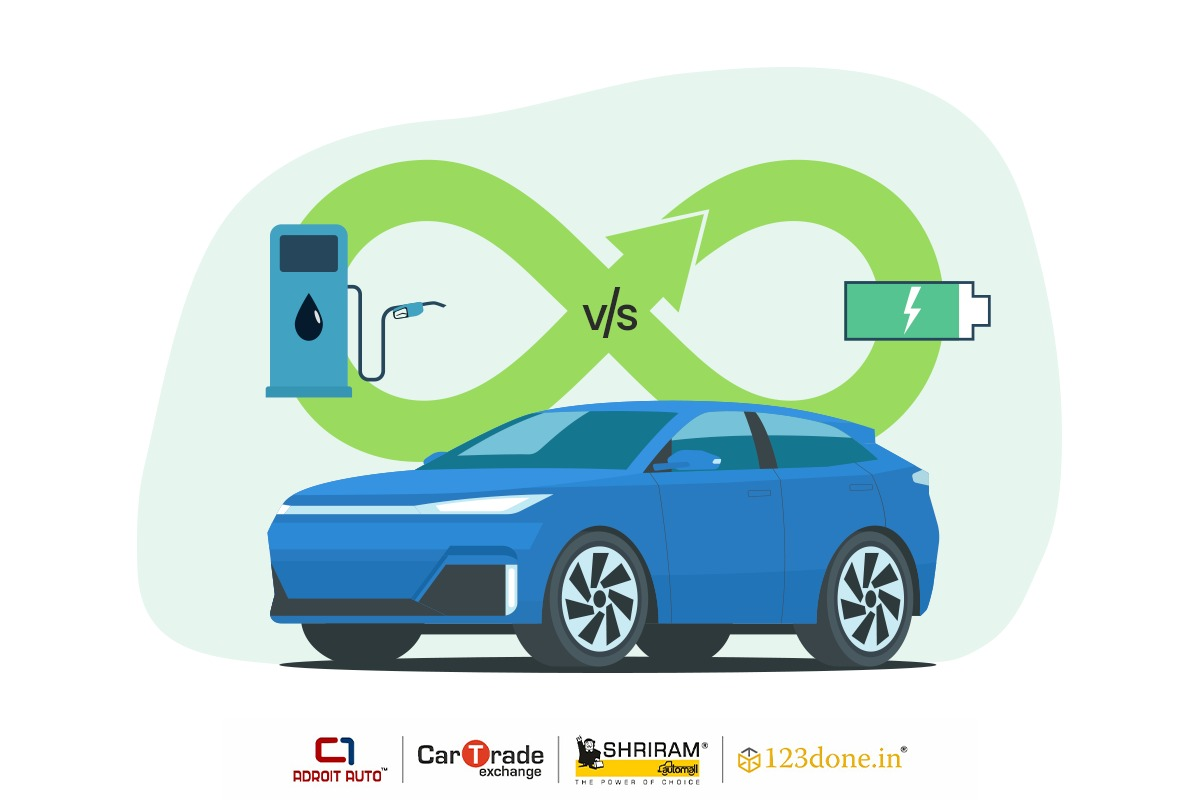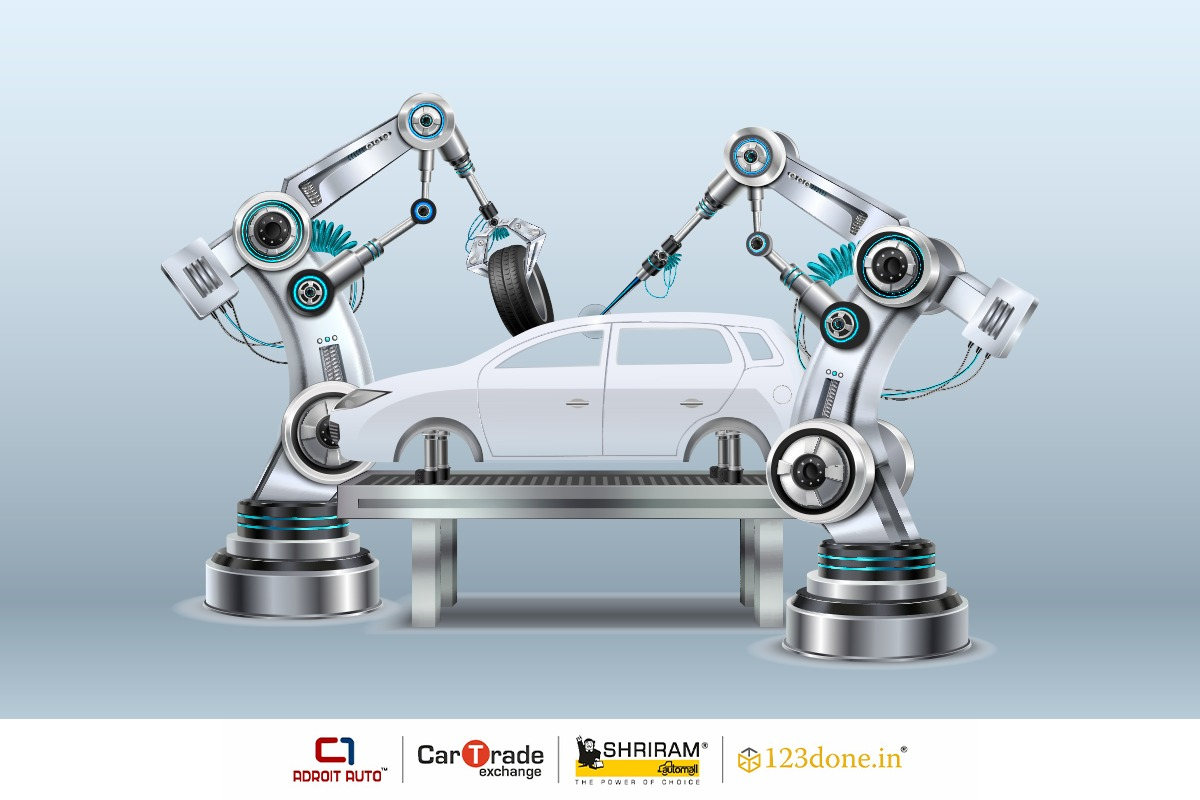What is a Hybrid Car? Definition, Types & Key Benefits

Hybrid cars are also known as Hybrid Electric Vehicle (HEV) which is a combination of gas or diesel engine with an electric motor and a batter pack. A hybrid car uses internal combustion engine (ICE) and an electric motor best fitted for fuel efficiency and lower emissions than traditional vehicles. The main types of a hybrid car include mild hybrids which has a small battery and is engine focused, and the other is full hybrids that have a large battery and are able to run only on electric power for short distances. There are many benefits of a hybrid car, including better fuel efficiency, reduced pollution, and enhanced performance. This blog will further explain what is a hybrid car, its types, and the benefits of hybrid cars.
Read ahead for getting a detailed overview of hybrid cars. By the end of this blog, you will be well versed with its concept and technology.
What is a Hybrid Car?
Hybrid Electric Vehicle is a dual-power system that allows a car to operate on electric power, gasoline, or both combined together depending on what the conditions of driving are. This helps less burning of gasoline for enhanced fuel efficiency and reduced pollution levels. Except for the plug-in hybrid cars, all hybrids charge their battery through their internal system so that there is no need of recharging.

The automotive industry now tends to provide atleast one hybrid option for their respective company and it has hence become a part of the mainstream. Less petrol gets burned since both energy systems work to move the vehicle forward.
Types of Hybrid Cars
There are several designs of hybrid cars with slight changes in their technologies and working. Different designs come to achieve maximum fuel efficiency while keeping the process as low as possible. Let us look at the types of hybrid cars:
Parallel Hybrid Car
The most common type of hybrid car design which combines both electrical and internal combustion engine for powering the engine is a parallel hybrid car. Both engines can run together or one can be used at a time as the source of power while other helps by giving extra power when climbing, or overtaking a vehicle. Both the power sources are parallelly connected to the gearbox or sometimes to the transmission which is why the name, parallel hybrid.
Series Hybrid Car
The series hybrid car also consists of both petrol combustion engine and an electric motor. But in this, the internal combustion system doesn’t power the car, but the battery pack by generating electricity to recharge it. This helps the battery pack to power the car so that it can move by powering the wheels.
Plug-in Hybrid Car
The type of hybrid car that elevates the normal hybrid cars with a larger battery pack that needs to be charged is the plug-in hybrid car. It generally uses a 110-volt socket to the charge the battery same as an electric car. There is a substantial improvement in the fuel efficiency since the plug-in hybrid cars doesn’t need an internal combustion engine to run, and both sources can be independently used.
Two-Mode Hybrid Car
The two-mode hybrid car works in two distinct ways. On the first mode, it works similar to a conventional hybrid car, while in the second mode the engine can be adjusted for different requirements to meet specific vehicle tasks.
Mild Hybrid Car
The building cost of the hybrid cars is quite high and continues to rise. Mild hybrid cars adhere to the emission norms with slightly enhanced fuel efficiency without increasing extra cost. In mild hybrid cars, the electric motor assists the petrol engine by acting as a starter for the automatic start/stop function for switching the engine off. This helps the car come to a rest in turn reducing the use of fuel.
Benefits of Hybrid Cars

In today’s time where fuel prices are sky rocketing and pollution is everywhere, hybrid cars come with a lot of benefits. Let us look at some of those benefits of using a hybrid car:
Fuel Efficiency
As the electric motor present in the hybrid cars support the primary petrol engine, additional power is available. This reduces fuel dependency of the cars saving fuel and using energy for driving the cars. Hnece, fossil fuel usage is also reduced.
Clean Emissions
The internal combustion engines produce a lot of smoke and are considered to be responsible for air pollution. Hybrid cards employ both power sources, petrol, and electric, which efficiently reduces emissions and is considered to be eco-friendly.
Efficient Engine
The engines present in hybrid cars are smaller and more efficient since an electric motor is also present for powering the car. The petrol engines used in hybrid cars are compact and hence are more fuel efficient.
Regenerative Brakes
As soon as the brakes are applied in a hybrid vehicle, the generator generates electricity and recharges the battery. This eliminates the need to stop the vehicle to charge the battery pack or get the fuel filled.
Disadvantage of Hybrid Cars
With the presence of so many benefits, there exists some disadvantages of using hybrid vehicles also. Every technology comes with its own set of pros and cons. Some of the disadvantages of hybrid vehicles are:
Lower Performance
The power and acceleration of hybrid cars are comparatively lower than conventional cars. This is because the main motive of hybrid cars is to be fuel efficient which leads to the lagging of hybrid cars in front of a traditional internal combustion engine.
Not Cost Effective
Car companies are trying hard to bridge the pricing gap between a conventional car and hybrid car, the hybrids still continue to demand higher costs. They are expensive to buy and technical to maintain. The maintenance cost of hybrid cars is also high since there are two sets of engines powering the car.
Conclusion
Hybrid cars might not be a viable option for all yet since they cost more than conventional cars, new innovations may turn them to be affordable in the future. Hybrid cars are indeed the future since they are more environment-friendly and fuel-efficient. Keeping its benefits and disadvantages in mind, you can now make an informed decision of buying a hybrid car. There are many options currently flooding in the market like, Toyota Camry, Maruti Suzuki Baleno, Maruti Suzuki Ciaz, Maruti Suzuki Ertiga, Lexus ES 300h Exquisite, Volvo XC60, Volvo XC90, Toyota Corolla, Kia Niro, Hyundai Ioniq Plug-in Hybrid, MG Hector, etc. The future is brighter than ever, from here, the graph would only go up!
Frequently Asked Questions (FAQs)
1. What is a hybrid car and how does it work?
A hybrid car combines a petrol or diesel engine with an electric motor and battery pack. Both systems work together (or separately) to improve fuel efficiency and reduce emissions.
2. What are the main types of hybrid cars?
The common types include mild hybrids, full hybrids, parallel hybrids, series hybrids, plug-in hybrids, and two-mode hybrids. Each differs in how it uses the engine and electric motor.
3. What are the benefits of hybrid cars?
Hybrid cars offer better mileage, lower emissions, quieter rides, and features like regenerative braking that recharge the battery while driving.
4. Are hybrid cars more expensive to buy and maintain?
Yes, hybrids usually cost more upfront and may have higher maintenance costs due to their dual power systems, but they save fuel and can reduce running costs over time.

 Download Our App
Download Our App



